Английский язык для специальных и академических целей: Международные отношения и зарубежное регионоведение. Часть 1 - [24]
3. Obama is a good communicator because he speaks effectively.
4. All empires eventually collapsed. The USA is an empire; therefore, it is certain to collapse, too.
5. In 2008 America elected their first non-white president. Given that black Americans were granted the right to vote before American women did, it appears natural to expect Hilary Clinton to win the next elections.
6. I can't call abstract painting art. Small wonder Nikita Khrushchev said it was sheer daubery.
7. The Bank of Russia let the ruble's exchange rate float freely and oil prices went down.
8. If drug trafficking were not illegal, then it would not be prohibited by the law.
9. When President Obama finally got his healthcare bill approved by Congress, the latter became predominately Republican.
10. Viability of a form of government depends on its capacity for change. If a government is capable of adapting to change it can outlive other forms. Monarchy is one of the oldest forms of government. The British monarchy has survived due to its adjustability to change. Therefore, the British monarchy is a viable form of government.
11. Fiscal austerity initiated by the Government in 2010 has produced recovery of the British economy.
12. If you ask your children what personal computer they're using, chances are they'll say an Apple II, which is a sound reason to think it is the leading computer in education.
13. It (Quebec's referendum in 1995) is like parents getting a divorce, and maybe the parent you don't like getting custody.
14. According to leading experts, the stalemate can last indefinitely.
15. According to former U.S. Secretary of State Henry Kissinger Russian President Vladimir Putin should not be viewed as a new Hitler; every senior Russian that he ever met, including dissidents like Solzhenitsyn and Brodsky, looked at Ukraine as part of the Russian heritage.
Unit I. UK: from Empire to Democracy
Unit I. UK: from Empire to Democracy
Useful tips on how to write an effective essay are given in the Manual.
This unit offers practice in writing logical arguments in support of one's thesis statement.
Topic: The future of the British Monarchy
Thesis statement: Great Britain is most likely to retain the monarchy.
Why will the British keep the monarchy?
1. Britain has been a monarchy for centuries, only for a short while becoming a republic under Cromwell.
2. The British zealously preserve their traditions, be it Christmas pudding or afternoon tea. Having a monarch at the head of the state is one of them.
3. Monarchy gives a sense of continuity and security in the ever changing world.
4. The British monarch has a purely decorative function and thus does not contradict the democratic principles of government in Great Britain.
5. The British monarch is impartial, does not support any political party, hence, can give advice to whoever is head of the state at the moment.
6. Britain without a monarch will lose most of its attractiveness for tourists who bring millions to the country's budget.
7. The British monarch works endlessly as an ambassador and representative of the country.
8. The Crown consolidates the nation and strengthens the unity of the UK.
1. Is the age of either a form of governance or of a leader a sure sign of efficiency and effectiveness?
2. In what way does following traditions protect a country (in this case Great Britain) from calamities? >20> ?
3. How well do democratic principles coexist with monarchy? Does this combination work out for Great Britain?
4. Does the British monarch contribute to world peace and unity of nations (at least members of the former empire)?
5. Why should monarchy make a country (in this case Great Britain) more attractive to tourists?
6. Is the British monarch perceived by the Britons as ‘the father/mother of the whole nation'?
7. Do the British respect the monarch as a symbol or as a particular individual on the throne at a particular moment in the country's history?
8. In what way can the British monarch ‘shelter' the people from disturbing changes within the kingdom or the world at large?
9. Can you think of good analogies to prove that the British monarchy does have a future?
10. What facts and statistics can you provide to prove the reasons are valid? (e.g. find out how much the monarch costs the nation and how much she/he brings to the treasury).
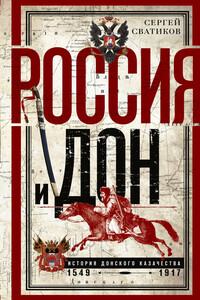
Предлагаем вашему вниманию адаптированную на современный язык уникальную монографию российского историка Сергея Григорьевича Сватикова. Книга посвящена донскому казачеству и является интересным исследованием гражданской и социально-политической истории Дона. В работе было использовано издание 1924 года, выпущенное Донской Исторической комиссией. Сватиков изучил колоссальное количество монографий, общих трудов, статей и различных материалов, которые до него в отношении Дона не были проработаны. История казачества представляет громадный интерес как ценный опыт разрешения самим народом вековых задач построения жизни на началах свободы и равенства.
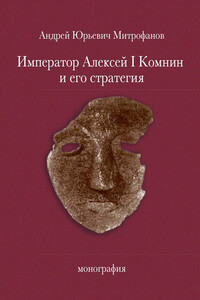
Монография доктора исторических наук Андрея Юрьевича Митрофанова рассматривает военно-политическую обстановку, сложившуюся вокруг византийской империи накануне захвата власти Алексеем Комнином в 1081 году, и исследует основные военные кампании этого императора, тактику и вооружение его армии. выводы относительно характера военно-политической стратегии Алексея Комнина автор делает, опираясь на известный памятник византийской исторической литературы – «Алексиаду» Анны Комниной, а также «Анналы» Иоанна Зонары, «Стратегикон» Катакалона Кекавмена, латинские и сельджукские исторические сочинения. В работе приводятся новые доказательства монгольского происхождения династии великих Сельджукидов и новые аргументы в пользу радикального изменения тактики варяжской гвардии в эпоху Алексея Комнина, рассматриваются процессы вестернизации византийской армии накануне Первого Крестового похода.
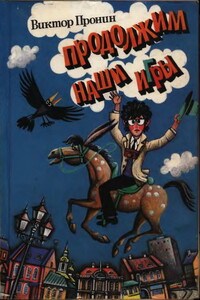
Виктор Пронин пишет о героях, которые решают острые нравственные проблемы. В конфликтных ситуациях им приходится делать выбор между добром и злом, отстаивать свои убеждения или изменять им — тогда человек неизбежно теряет многое.
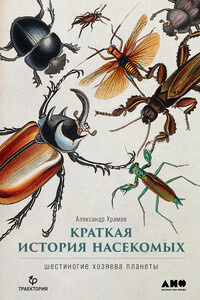
«Любая история, в том числе история развития жизни на Земле, – это замысловатое переплетение причин и следствий. Убери что-то одно, и все остальное изменится до неузнаваемости» – с этих слов и знаменитого примера с бабочкой из рассказа Рэя Брэдбери палеоэнтомолог Александр Храмов начинает свой удивительный рассказ о шестиногих хозяевах планеты. Мы отмахиваемся от мух и комаров, сражаемся с тараканами, обходим стороной муравейники, что уж говорить о вшах! Только не будь вшей, человек остался бы волосатым, как шимпанзе.
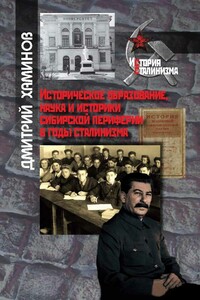
Настоящая монография посвящена изучению системы исторического образования и исторической науки в рамках сибирского научно-образовательного комплекса второй половины 1920-х – первой половины 1950-х гг. Период сталинизма в истории нашей страны характеризуется определенной дихотомией. С одной стороны, это время диктатуры коммунистической партии во всех сферах жизни советского общества, политических репрессий и идеологических кампаний. С другой стороны, именно в эти годы были заложены базовые институциональные основы развития исторического образования, исторической науки, принципов взаимоотношения исторического сообщества с государством, которые определили это развитие на десятилетия вперед, в том числе сохранившись во многих чертах и до сегодняшнего времени.
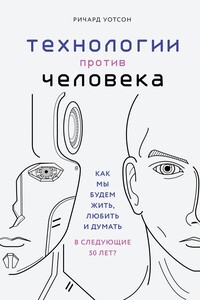
Эксперты пророчат, что следующие 50 лет будут определяться взаимоотношениями людей и технологий. Грядущие изобретения, несомненно, изменят нашу жизнь, вопрос состоит в том, до какой степени? Чего мы ждем от новых технологий и что хотим получить с их помощью? Как они изменят сферу медиа, экономику, здравоохранение, образование и нашу повседневную жизнь в целом? Ричард Уотсон призывает задуматься о современном обществе и представить, какой мир мы хотим создать в будущем. Он доступно и интересно исследует возможное влияние технологий на все сферы нашей жизни.